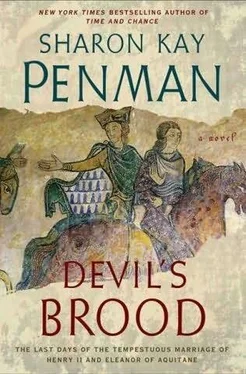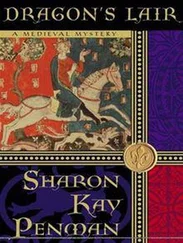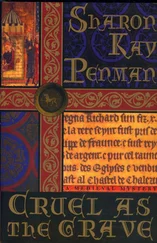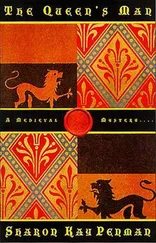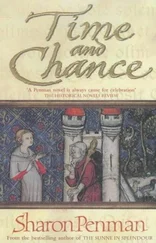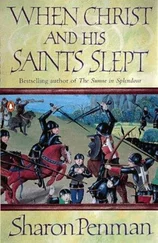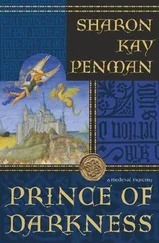Sharon Penman - Devil's brood
Здесь есть возможность читать онлайн «Sharon Penman - Devil's brood» весь текст электронной книги совершенно бесплатно (целиком полную версию без сокращений). В некоторых случаях можно слушать аудио, скачать через торрент в формате fb2 и присутствует краткое содержание. Жанр: Исторические приключения, на английском языке. Описание произведения, (предисловие) а так же отзывы посетителей доступны на портале библиотеки ЛибКат.
- Название:Devil's brood
- Автор:
- Жанр:
- Год:неизвестен
- ISBN:нет данных
- Рейтинг книги:4 / 5. Голосов: 1
-
Избранное:Добавить в избранное
- Отзывы:
-
Ваша оценка:
- 80
- 1
- 2
- 3
- 4
- 5
Devil's brood: краткое содержание, описание и аннотация
Предлагаем к чтению аннотацию, описание, краткое содержание или предисловие (зависит от того, что написал сам автор книги «Devil's brood»). Если вы не нашли необходимую информацию о книге — напишите в комментариях, мы постараемся отыскать её.
Devil's brood — читать онлайн бесплатно полную книгу (весь текст) целиком
Ниже представлен текст книги, разбитый по страницам. Система сохранения места последней прочитанной страницы, позволяет с удобством читать онлайн бесплатно книгу «Devil's brood», без необходимости каждый раз заново искать на чём Вы остановились. Поставьте закладку, и сможете в любой момент перейти на страницу, на которой закончили чтение.
Интервал:
Закладка:
It was suddenly very still. The crowd scarcely seemed to be breathing, and more than a few surreptitiously made the sign of the cross. Some of Henry’s own companions cautiously edged away, in case Merlin’s prophecy involved a celestial thunderbolt. Rainald reached out as if to keep Henry from advancing any farther. Ranulf did not consider himself to be particularly superstitious, but even he did not want his nephew to set foot on that slick marble stone.
Henry looked from one tense face to another and then, slowly and very deliberately, strode forward. Leaping nimbly onto the rock, he crossed without a misstep. Turning back to face the spectators, he said in a voice pitched loudly for all to hear, “Who will believe that liar Merlin now?”
There was a collective sigh as breathing resumed and the world of shadows receded before Henry’s scorn and certainty. Beaming, Rainald made haste to follow, as did the others. People trooped over Lechlaver, the depths of their unease revealed now by the intensity of their relief. Only the Welsh bystanders stayed on the other side of the shallow river, their disappointment etched in the down-turned mouths, the averted eyes. One youth could not endure to see Merlin shamed before these arrogant foreigners and called out in heavily accented French:
“You are not the king in Merlin’s prophecy, for you are not the conqueror of Ireland!”
Henry swung around to confront the young Welshman, and for a suspenseful moment, his audience wondered if they were to see his notorious Angevin temper take fire. But then Henry laughed. “If your Merlin thought anyone could truly conquer Ireland, lad, he was a poor prophet, indeed!” Adding under his breath to Ranulf as they resumed their progress toward the cathedral, “How do you defeat a people who lack the common sense to know when they’re beaten?”
Ranulf smiled, knowing that Henry was speaking, too, of the Welsh and his disastrous campaign of six years past. His ambitious plans to bring the rebellious Welsh lords to heel had come to naught, thwarted by the erratic weather, the rugged mountainous terrain, and phantom foes who refused to take the field, preferring hit-and-run raids, evasive maneuvers, and nightfall forays that recognized their weaknesses and played to their strengths. Faced with a rare military defeat, Henry had withdrawn his army back across the border and changed his tactics, forging an alliance with Rhys ap Gruffydd, the most powerful of the Welsh princes. So far this stratagem had proven successful; Wales was more peaceful than it had been in years.
Glancing over at Henry, Ranulf hoped that his nephew would apply the lessons he’d learned from the Welsh in his current battle with His Holiness the Pope and the mighty Roman Church. But it was just that-a hope-for he of all men knew how dangerously stubborn Henry Fitz Empress could be. There were faint bloodstains upon the tiles in Canterbury Cathedral testifying to that.
CHAPTER TWO
May 1172
Savigny Abbey, Normandy
It was dusk when the Bishop of Worcester rode through the gatehouse of the Cistercian abbey of Our Lady. Although a prince of the Church, Roger traveled without an entourage-only a servant, his clerk, and four men-at-arms, their presence required on the outlaw-infested roads. He did not think an ostentatious display was appropriate, for he was living in exile, having left England in protest over the English king’s contest of wills with Thomas Becket. Few had emerged unscathed from that cataclysmic conflict between Church and Crown, but Roger’s loyalties had been shredded to the bone. Becket was more than a fellow prelate and the head of the English Church; he was also a close friend. And Henry Fitz Empress was more than Roger’s sovereign; the two men were first cousins and companions since childhood.
Roger had been one of the few men who’d dared to tell the king the truth in the turbulent aftermath of Becket’s murder: that Henry might not be guilty of the actual deed, but neither was he innocent. But he had also been one of the bishops sent to Rome to plead Henry’s case before the Pope, denying that the archbishop had died at his order. Now he was once more thrust into the role of peacemaker, riding to Savigny’s great abbey to bear witness to this meeting between two papal legates and his cousin the king, knowing full well how high the stakes were for all concerned.
In addition to the two cardinals, a number of Norman and Breton bishops would also be present. By Roger’s reckoning, at least eight were men who could be expected to support the king. In truth, many of Becket’s fellow bishops had been less than enthusiastic soldiers in the Archbishop of Canterbury’s crusade to vanquish the English king, feeling that he’d been needlessly provocative and acrimonious, always scorning compromise in favor of confrontation. Until his ungodly murder had transformed him from often-irksome zealot to blessed holy martyr, Becket had found his strongest advocates among the bishops of France, his warmest welcome at the court of Louis Capet, the French king. Two of his most steadfast allies had been the Bishop of Rheims, Louis’s brother, and the Archbishop of Sens, who’d laid Henry’s continental lands under Interdict, and whose sister was Louis’s queen.
It did not surprise Roger that neither of these prelates would be present at the Savigny council, for he knew Pope Alexander wanted-nay, needed-to mend this dangerous rift with the most powerful monarch in Christendom, just as Henry needed to make peace with the Holy See. It would be a great pity, he thought, if Harry’s foolhardy pride thwarted that rapprochement.
Roger was surprised, though, by the absence of John des Bellesmains, the Bishop of Poitiers. He would have expected John to be there, come what may, for his friendship with Thomas Becket had gone back many years, begun in their youth as clerks in the household of the Archbishop Theobald. But Poitiers was the capital of Poitou, the domains of the Lady Eleanor, Henry’s controversial queen and Duchess of Aquitaine in her own right. Roger wondered now if Eleanor had deliberately kept Bishop John away from Savigny, knowing his sympathies lay firmly with the slain archbishop. If she had, then mayhap the rumors of her estrangement from Harry were not true.
But with Eleanor, there could be other reasons, other motives as yet undiscovered. Even though his sister Maud, the Countess of Chester, was one of Eleanor’s intimates, Roger had always been rather wary of his cousin’s queen, a woman who dared to meddle in those matters of state best left to men. And if Harry spun webs to make a spider proud, Eleanor could entangle archangels in her snares. Roger suspected that she intrigued even in her sleep.
The hosteller was waiting to welcome Roger, and grooms had materialized to lead their horses to the stables. After an exchange of courtesies, Roger was turning to follow the monk toward the abbey guest hall when his attention was drawn by a flash of color. Unlike the unbleached white habits worn by the Cistercian monks moving about the abbey garth, this man was garbed in a cope of bright blue silk, decorated with wide embroidered borders, and a matching blue mitre, the points ornamented with scarlet thread. The processional cope and mitre proclaimed him to be a prelate of Holy Church, and the fleshy, ruddy face was vaguely familiar to Roger, but to his embarrassment, the name eluded him.
Fortunately, his gaze then fell upon the bishop’s companion, a slightly built man, no longer young, starkly clad in the black cowl and habit of the Benedictines, abbot of one of Christendom’s great jewels, the island monastery of Mont St Michel, and a friend of long standing, both to Roger and his cousin the king. And as he warmly returned Abbot Robert de Torigny’s greeting, Roger recalled the identity of the mystery bishop: the abbot’s neighbor, prelate of the city across the bay, Richard of Avranches.
Читать дальшеИнтервал:
Закладка:
Похожие книги на «Devil's brood»
Представляем Вашему вниманию похожие книги на «Devil's brood» списком для выбора. Мы отобрали схожую по названию и смыслу литературу в надежде предоставить читателям больше вариантов отыскать новые, интересные, ещё непрочитанные произведения.
Обсуждение, отзывы о книге «Devil's brood» и просто собственные мнения читателей. Оставьте ваши комментарии, напишите, что Вы думаете о произведении, его смысле или главных героях. Укажите что конкретно понравилось, а что нет, и почему Вы так считаете.
